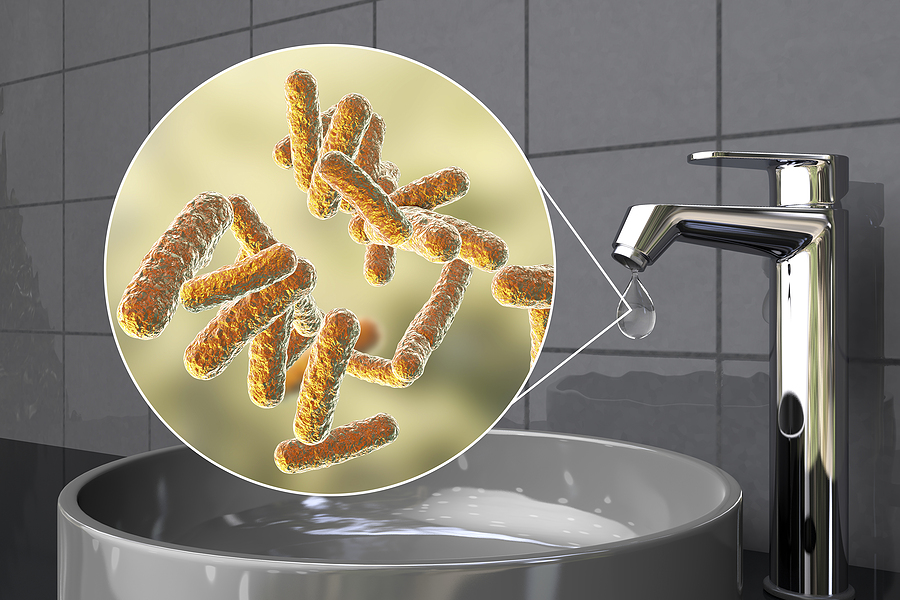If a well water filtration system is not being used with your private or public well, then you may be consuming contaminants with your morning coffee. Simply put: unfiltered well water can expose the public to a potpourri of pollutants and pathogens. These substances can lead to viral and bacterial outbreaks including Hepatitis A and Salmonella.
How do we prevent this from happening?
Effective well water filtration systems will filter out a host of harmful contaminants so that you will be able to safely drink your well water. To understand how important systematic filtration is, let’s review 7 different contaminants that would be in your glass if it weren’t for that invaluable filter.

Bacteria, Viruses, and Parasites, Oh My!
It’s safe to say that there are more living creatures thriving in your well water than meets the eye. Microorganisms such as bacteria, viruses, and parasites can be commonly found in soil and waste. So without a filter, traces of coliform or E. Coli could find their way into your drinking water. Consuming such creatures can cause countless illnesses including cholera, dysentery, and hepatitis.
In addition, water run-off from rainfall can further contaminate your well by washing microorganisms into it. Even if your body of water is “pristine” below the surface, a rain or snowstorm will definitely change that.
Say No to Nitrates
Next on our list are nitrates and nitrites. Similar to microorganisms, water-runoff, and groundwater movement are the major causes of contamination. These naturally occurring compounds may not usually be a grave concern; however, high consumption levels can lead to headaches, upset stomachs, and even an increased risk of cancer development.
Essentially, nitrates and nitrites prevent blood from carrying oxygen effectively. This is why a well water filtration system is absolutely necessary.
Heavy Metal
Do you want arsenic, lead, and copper in your drinking water? Heavy metals can leach into your water from plumbing and service lines in addition to groundwater movement and run-off. If your plumbing lines have corroded over time, heavy metals may have been making their way into your water.
Consistent consumption of these heavy metals can lead to significant kidney and liver damage or even cancer. Although these risks may not be evident right away, long-term consumption can be deadly.
Organic Doesn’t Mean Safe
Substances such as pesticides, paints, dyes, and disinfectants can creep their way into your well water from waste disposal and water run-off. These organic chemicals have proven dangerous to the circulatory, nervous, and reproductive systems if consumed frequently. Well water filtration systems will be able to keep them out and prevent public consumption.
Turn Down the Radio-nuclides
But what about substances that are naturally occurring almost everywhere such as in food, sunlight, and even the Earth’s crust? Radionuclides are radioactive forms of elements that are found seemingly everywhere. Common examples include uranium and radium which are often present in groundwater and bedrock.
Radionuclides can seep into well water as a result of flooding and industrial waste. You definitely want to refrain from drinking water rich in radionuclides as they have been known to cause kidney toxicity and even cancer. Thankfully, well water filtration systems can filter these problematic substances.
Keep Fluoride Safe
Often added to public drinking water supplies, fluoride helps to prevent tooth decay. However, it can cause skeletal damage and teeth discoloration if consumed in excessive amounts. Implementing a well water filtration system can help ensure that your well water’s fluoride level is below the current standard of 4.0 mg/L. This way, you can safely strengthen your enamel and prevent cavities.
Soil Toil
The final contaminant on our list is sediment. As your well water is in direct contact with the ground, dirt and sand particles can easily shift their way into your drinking water. These contaminants may not cause significant damage to your body; however, they can damage your appliances. Built-up sediments can clog up valves and fixtures to the point where costly repair may be necessary. With that said, we believe there is a healthier and more cost-effective solution:

Implement a Well Water Filtration System
To ensure your well water is free of all 7 contaminants (and more), give us a call at A1 Well Drilling. Our seasoned team boasts four generations of experience installing and servicing well water filtration systems. From drilling and pumping to purification, contaminants are no match for A-1 Well Drilling. Contact us today to get started.





